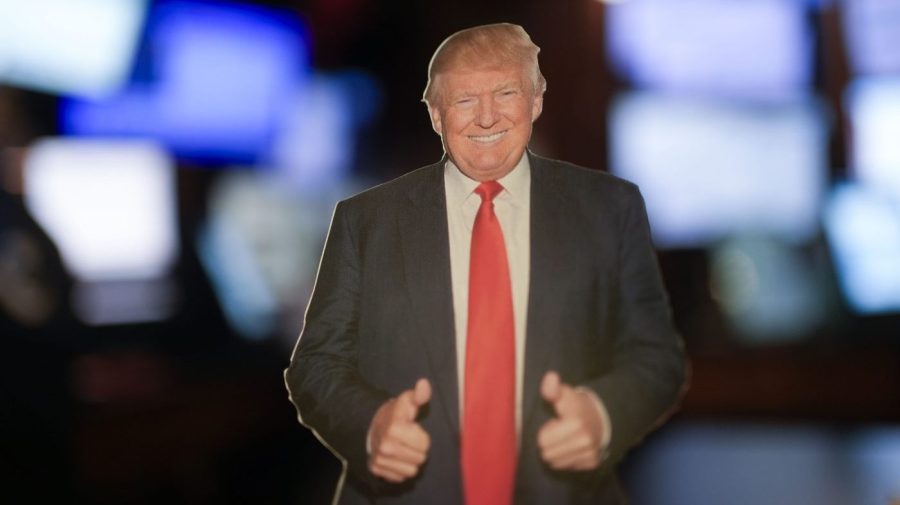
The Prussian statesman Otto von Bismarck famously said that “politics is the art of the possible.” And there is no greater example of the principle than Donald Trump’s return to power.
Trump has pulled off the greatest political comeback in American history. It is almost inconceivable that it could be done. But it was.
In just two weeks, Trump will take the oath of office to become the 47th president on the same spot where on Jan. 6, 2021 he unleashed an insurrection against the very Constitution he had sworn to “protect, preserve and defend.”
Trump has been adjudicated to have engaged in an insurrection against the Constitution. Yet, the 14th Amendment notwithstanding, he has escaped disqualification.
Trump begins his second administration with a sullied reputation. He will become the first president to be twice impeached, to take office as a convicted felon and to have been indicted and charged with serious crimes in four jurisdictions. He will also be the first president to have been successfully sued for defamation in a case involving a sexual assault on a woman in a department store dressing room, with awards by two juries totaling more than $83 million in compensatory and punitive damages. He will be the first president to be adjudicated a fraudster and slapped with a $486 million judgment in a civil suit brought by the unrelenting attorney general of New York State.
Trump claimed that the court cases that might have disqualified him were all politically inspired by a weaponized justice system populated with “woke” Democrats and left-wing prosecutors — charges levelled but never proved. No law says only MAGA supporters can prosecute their own.
Trump spun the violent criminals convicted and jailed over their role in the assault on the Capitol as no longer outlaws but patriotic martyrs, persecuted political prisoners teed up for a “get out of jail free” pardon on Trump’s first day in office.
As a lawyer and former federal prosecutor, I was trained to revere the sanctity of jury verdicts. As the New York judge who denied Trump’s motion to throw out his criminal conviction on 34 felony counts of fraud put it, “The significance of the fact that the verdict was handed down by a unanimous jury of 12 of Defendant’s peers, after trial, cannot possibly be overstated. Indeed, the sanctity of a jury verdict and the deference that must be accorded to it, is a bedrock principle in our Nation’s jurisprudence.”
Bedrock or not, in a stunning series of events — some calculated and some unexpected — Trump was able to avoid jury trial in the other more important cases where the evidence appeared to be overwhelming.
In Florida, before the unmistakably friendly and transparently inexperienced trial judge he himself appointed, he was able to escape trial because of an unprecedented and extraordinary ruling that Special Counsel Jack Smith, appointed by the attorney general, had no constitutional authority to bring the case.
In the District of Columbia, where his culpability in the criminal events of Jan. 6 appeared beyond a reasonable doubt, he avoided trial through tactics of delay, making trial impossible once he won the election. Give an assist to the partisan and ethically challenged Supreme Court, which delayed its decision for months and granted Trump a qualified immunity nowhere expressed in the text or the original understanding of the Constitution.
Luck played a role. In Georgia, where there was a taped conversation of Trump importuning the Republican secretary of state to “find” him the necessary votes to tip the state his way, he was able to delay matters because the prosecutor slept with her chief assistant.
In New York, even after conviction, Trump has been able to escape a prison sentence because of his electoral victory. Eugene V. Debs ran for president in 1920 from jail, but we obviously can’t have an incarcerated sitting president.
Trump ran out the clock until he was elected president. Had he failed in the election, he probably would have been tried, convicted and jailed.
To any objective observer, Jan. 6, 2021 was another day in American history that will “live in infamy.” The evidence of insurrection that the American people saw in hours of video footage, with Trump urging the mob to “fight like hell,” and “take back your country,” was incontestable.
But was it? Within months of the attack, Trump called the day largely peaceful, claimed that the mob had been “ushered in” by the police and that the protesters were a “loving crowd.” And people believed it. Later, he blamed the “deep state,” and of course Nancy Pelosi.
Trump’s disinformation campaign worked in the fullness of time. By mid-2022, polls showed that fewer than 50 percent of Americans held Trump responsible for Jan. 6.
From the founding of the republic, we have held our right to justice sacred, with justice to be administered by the courts, its keepers the judges, not the people. Not today.
We have said we are a government of laws, not men. We have said that no one is above the law. Justice must turn on the law and the facts, on what the defendant at bar did or didn’t do, not on who he is. Not today.
By artifice, luck, disinformation and extraordinary political success, Trump has shown that the only verdict that counts is in the court of public opinion, where emotion, not law, reigns supreme.
James D. Zirin, author and legal analyst, is a former federal prosecutor in New York’s Southern District. He is also the host of the public television talk show and podcast Conversations with Jim Zirin.












